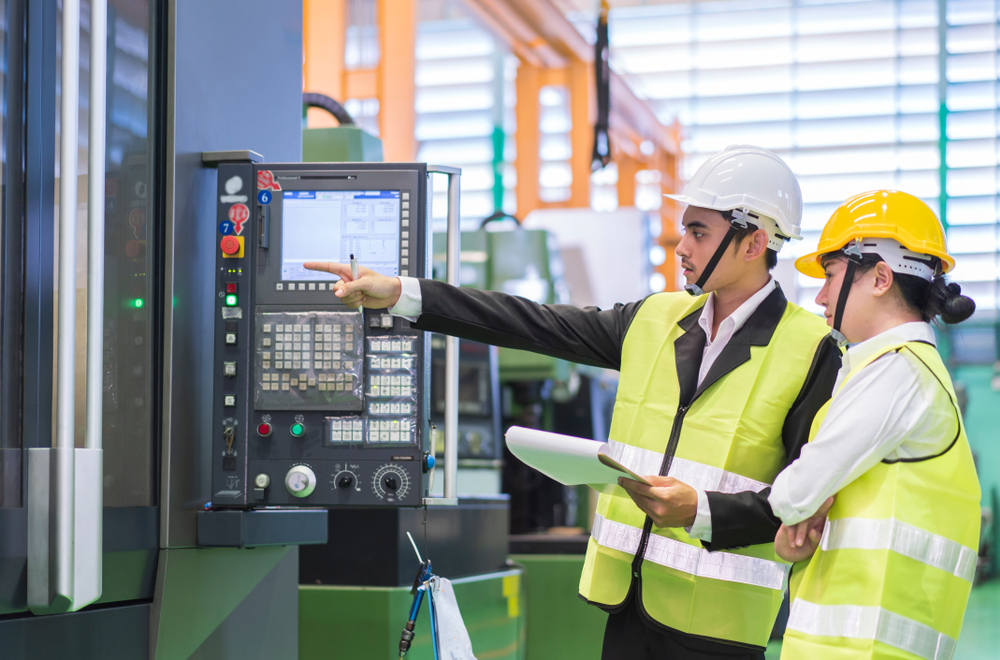

This course is maintenance management centred on the rotating equipment where emphasis is placed on its performance, reliability, and lifetime extension. The significance of the continuous improvement in maintenance procedures in the operational optimization of important machines is also covered.
| City | Start Date | End Date | Fees | Register | Enquire | Download |
|---|---|---|---|---|---|---|
| Madrid | 23-06-2025 | 27-06-2025 | 6200 $ | Register | Enquire | |
| Milan | 30-06-2025 | 04-07-2025 | 6200 $ | Register | Enquire | |
| Manama | 07-07-2025 | 11-07-2025 | 4400 $ | Register | Enquire | |
| Vienna | 14-07-2025 | 18-07-2025 | 6200 $ | Register | Enquire | |
| Zurich | 21-07-2025 | 25-07-2025 | 5600 $ | Register | Enquire | |
| Kuala Lumpur | 28-07-2025 | 01-08-2025 | 4950 $ | Register | Enquire | |
| Vienna | 04-08-2025 | 08-08-2025 | 6200 $ | Register | Enquire | |
| Singapore | 11-08-2025 | 15-08-2025 | 5500 $ | Register | Enquire | |
| Kuala Lumpur | 18-08-2025 | 22-08-2025 | 4950 $ | Register | Enquire | |
| Dubai | 25-08-2025 | 29-08-2025 | 4300 $ | Register | Enquire | |
| Amsterdam | 01-09-2025 | 05-09-2025 | 6200 $ | Register | Enquire | |
| Casablanca | 08-09-2025 | 12-09-2025 | 4950 $ | Register | Enquire | |
| Bali | 15-09-2025 | 19-09-2025 | 4950 $ | Register | Enquire | |
| Barcelona | 22-09-2025 | 26-09-2025 | 6200 $ | Register | Enquire | |
| Cairo | 29-09-2025 | 03-10-2025 | 3950 $ | Register | Enquire | |
| Vienna | 06-10-2025 | 10-10-2025 | 6200 $ | Register | Enquire | |
| London | 13-10-2025 | 17-10-2025 | 6200 $ | Register | Enquire | |
| Prague | 20-10-2025 | 24-10-2025 | 6200 $ | Register | Enquire | |
| Milan | 27-10-2025 | 31-10-2025 | 6200 $ | Register | Enquire | |
| Cape Town | 03-11-2025 | 07-11-2025 | 5600 $ | Register | Enquire | |
| Dubai | 17-11-2025 | 21-11-2025 | 4300 $ | Register | Enquire | |
| Kuala Lumpur | 24-11-2025 | 28-11-2025 | 4950 $ | Register | Enquire | |
| Paris | 01-12-2025 | 05-12-2025 | 6200 $ | Register | Enquire | |
| Cairo | 08-12-2025 | 12-12-2025 | 3950 $ | Register | Enquire | |
| Amman | 15-12-2025 | 19-12-2025 | 3950 $ | Register | Enquire | |
| Istanbul | 22-12-2025 | 26-12-2025 | 4950 $ | Register | Enquire | |
| Amsterdam | 29-12-2025 | 02-01-2026 | 6200 $ | Register | Enquire |
Over the past decade, most process companies have extensively studied the distribution and optimization of rotating equipment reliability. Engineers have moved beyond solely relying on traditional maintenance and redundancy, instead analyzing and resolving how to achieve the minimum required reliability for each component at the lowest cost without compromising overall equipment reliability objectives.
Reliability improvements for each major design element are made based on whether it's more cost-effective to achieve the required reliability through failure avoidance or redundancy. Predictive maintenance is a key challenge in ensuring rotating equipment reliability, particularly in asset-intensive industries such as oil and gas.
Rotating equipment engineers must be skilled in preventing equipment failures, conducting root cause analysis, and improving condition monitoring for machinery such as pumps, turbines, and compressors. Achieving maximum reliability requires saving time and money by accurately identifying and permanently eliminating recurring issues.
The purpose of this rotating equipment maintenance and reliability course is to equip participants with the knowledge and skills needed to monitor component health, focusing on failure prevention and root cause analysis. The course covers failure root causes, global best practices in root cause analysis, and preventive maintenance techniques during installation, pre-commissioning, functional testing, commissioning, and maintenance.
By addressing equipment failure diagnostics and preventive measures, this course will enhance plant maintenance, increase efficiency, reduce operational costs, and improve overall plant availability.
Upon successful completion of the Rotating Equipment Maintenance and Reliability course, participants will be able to:
Unit 1: Reliability Overview:
Unit 2: Major Causes of Machinery Breakdown:
Unit 3: Machinery Breakdown Prevention Strategies:
Unit 4: Maximizing Benefits from CCM and PDM (Component Condition Monitoring and Predictive Maintenance) Systems:
Unit 5: Accurate and Effective Predictive Maintenance (Including Root Cause Analysis Techniques):
Unit 6: Root Cause Analysis Example Problem:
Unit 7: Root Cause Analysis Techniques (Improving Component Function Knowledge Base):



















